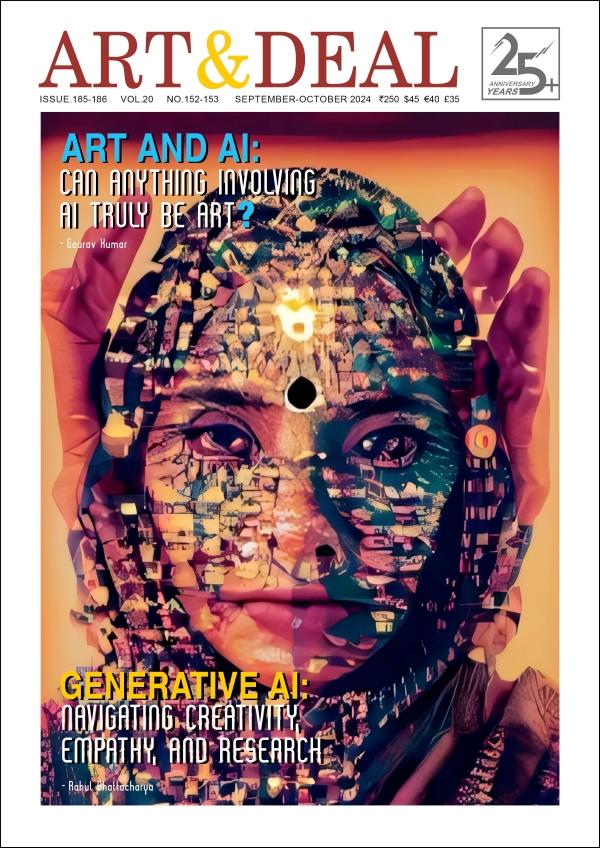 Of Valuing Equality – [MUMBAI] – Shubhalakshmi Shukla
Of Valuing Equality – [MUMBAI] – Shubhalakshmi Shukla
With numerous threads of insightful observations
and a needle sharp assertion in his visual language,
artist Nikhil Raunak, presents his debut solo show
titled ,‘Someday is Today’ at Clark House, Mumbai.
Questioning and sometimes answering, he creates
art works in a variety of mediums from embroidery
and charcoal sketches to architectural installations
and video work with its own coded language, reviews
Shubhalakshmi Shukla
As I begin my conversation with Nikhil Raunak, at his debut solo at the
Clark House Mumbai, he quotes from his work in embroidery, ‘We must
understand that all the threads of the tapestry are equal in value. No matter
what their colour’. It is Maya Angelou’s thought spoken aloud once again in
Nikhil’s work. In this work, the words are embroidered on a net cloth, wherein
each letter is formed out of diversely arranged grids. Each letter could be read
like a basic ground-plan for a house or a yet to be city’s blueprint. Each house
plan is a work of sweat and dust. It has spaces for work, rest and meditation.
Homeless poor are denied of these spaces. The paradox of evolving as an
individual ‘within’ and ‘without’ a home is yet, not so mysterious.
We are well aware of Maya Angelou’s life and her journey as a creative
individual. Her deep-seated, long silence as a child must have been a tyranny
that could not be understood or explained within her own mind for long
years. That, she evolved a sense of humour in her poetries
so sharp, is her reflection upon those unspoken moments
of pain and surrender that erupted within her mind; while
she used to read for long hours. Reading, like embroidery
has been an enduring nutriment for several women. And I
appreciate these acknowledgments in the works of Nikhil
Raunak.
‘We are having fun, but we are scared’ is a charcoal
drawing. Nikhil captures a real life incident here in this
work. Two Mumbai based artists were denied entry by a
gallery doorman as he felt they did not belong to that zone.
Class struggle is rampant in our society, Nikhil underlines
in his works. Laymen are still denied access to the zones of
high culture. One of the works is titled like this: ‘Diversity:
Embroidered on cloth. A diversity of design styles: variety,
miscellany, assortment, mixture, mix, melange, range,
array, multiplicity, variation, variance, diversification,
heterogeneity, difference, contrast. Antonym: Uniformity.’
An added text says, ‘We hoped this work would rest the
brain or rather the imagination to her credit, the work does
neither’.
On several occasions, fine strands of diverse groups
coexisting in a metropolis may appear mixed like an
attractive design, for instance, the traffic! Even though it is
beautiful like a tapestry, it is grey in nature. It’s grey nature
explains a poignant Indifference (that the traffic carries
within it’s mind). However much one is aware, I and You are
often within this traffic. Nikhil’s subtle attempts to address
the issues of racism, feminism, minority communities and
‘the oppressed’ at various levels bring forth a moment of rest
in the traffic and allow us to think about diversity.
‘What if one day a paper beats a rock?’ is a large work
which may install several architectural units, so far with
fifty three frames. This work is an ongoing project and may
evolve with 153 frames or more. Details of this work include
political sarcasm on India’s unending obsession with fair
skin in the world of advertisements, its reflection in daily
soaps; and those which are followed like an ideal formula by
the middle-class. This work recognizes its deep seated scar
in caste oppression/s.
